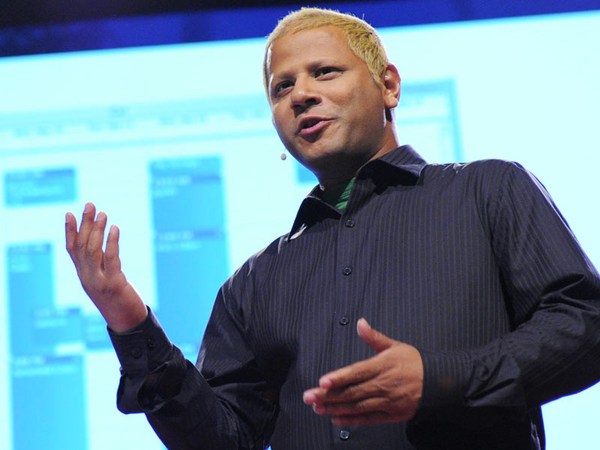We make three mistakes: the first is underestimating the quantity of information that we produce every day; the second is depreciating the value of that information; and the third is thinking that our principal problem is a distant and super powerful agency that is called NSA. And it is true that NSA has the major access, better resources, the best tools, but they don't need any of that to spy on us, because we have everything there; we live in glass houses. This is Malte Spitz, a member of the German Green Party. In 2009, Malte asked his telephone company to send him all the data they had on him. And the Deutsche Telekom, which was his company, told him no. Two lawsuits later, they sent him a CD with an Excel table of 30,832 lines; like "The War and the Peace", but three times larger. This endless document contains information from September of 2009 to February of 2010; it has exactly six months. This isn't accidental, it has six months because in the summer of 2008 the European Union presented the Data Retention Directive, where they demanded each telephone company with more than 10,000 clients keep the data of all their clients for a minimum of six months and a maximum of two years. They gave Malte data of 6 months, as if saying, "This is everything we have because the law forces us." They probably owe him a year and half. Malte, who couldn't process this amount of information, sent it to a weekly magazine which, in turn, contacted a data visualization agency to do something with it. They took the data from Deutsche Telekom and Malte's public information, like, for example, information from his Twitter account or his blog. And with this they created the map that you are looking at now, that is more than a map, it is more like a creepy automatic diary of Malte's life. We can see when he catches a train, which he's doing right now, when he stops, where he stays, when he goes, how he goes, how much time it takes him, when he is eating, when he is sleeping, like right now; when he takes a flight, who calls him, how long they speak, who sends him messages, what are the messages. We see everything. This is on the Internet. You can see it. The reason why this happens is because Malte has a mobile in his pocket that every five minutes makes a "ping" to the closest antenna and tells it, "Do you have something for me? Do I have mail? Do I have any WhatsApp messages? Has something happened in the world?" Raise your hand if you have a mobile in your pocket that does the same. Every five minutes our mobiles are saying, "I'm here, I'm here, now I'm here, hey, I'm here..." That's what happens. And this doesn't have precedents. We didn't have this before. The direct equivalent of that is what we have now on the screen. This is the profile of a person watched by the Stasi for years. Looks like a napkin, doesn't it? With 46 posts including his aunt, the milkman, the priest of his church -- These are five minutes in the life of Malte Spitz, and this information is automatic. And the worst thing is that this is only the data on Malte, but Malte is surrounded by people like us with mobiles like his that are producing the same information; and that company sees everything. This is a photo made by my colleague Juanlu Sánchez, a photo from manifestation 15-M. But let's look at it from a telecommunications' viewpoint. This square is full with mobiles. Using those mobiles we can know exactly who is at the square, almost as if we put a cordon around; with names and surnames. And not only we know when they have come, where they come from and with whom, whom they leave with, whom they call to; we know everything about them. We even know if they are on the 4th floor or down at the square. This is how that photo is seen by an algorithm of traffic analysis. And here we begin to see some cool stuff. We see that not all the people at the square are the same. There are people more important than others, and if we have control over these telecommunications, this network, we can do things, like turning off the nodes on this square, in other words, isolate those who gather others around them from the rest. Also we can do what the Ukrainian government did about a year and half ago: send out a message saying, "Dear user, you've been registered as a participant in a massive illegal manifestation." We don't behave the same when we know that we are watched. Since Jeremy Bentham we know that the best way to watch a population is for them not to know when they are watched and when not. In Malte's case, during those 6 months, they were watching him for 78 percent of the time. And we're only talking about our mobiles. We are not talking about our computers, nor the cameras that are on the streets, in the stores and shop-windows, in the airports and trains, and wherever we are, being watched. We are not talking about the radars on the roads that register us if we overspeed. We are not talking about what we have in a wallet. How many personal identification chips do we have in a wallet? We have a lot: an ID card, a driving license or a transport ticket, credit or debit cards, reward cards. A supermarket reward card. 20 years ago, the biggest personal data base in the world was not owned by NSA, neither by the Stasi, poor thing. It was owned by Wal-Mart, the American supermarket chain. Why? Because when they give you a reward card, what you're doing is telling a company who you are, where you live, how much you earn, what you buy, what you eat, how many kids you have, when you go on vacations, when you get sick. And all this we give them hoping that in six months or in a year, if we spend a lot of money, they'll give us a Tupperware. (Laughter) And it's not different from what we do on the Internet, because Deutsche Telekom is a legit European company that has to obey the Data Protection Law, the same way as Telef贸nica. Telef贸nica, here, has to obey the data protection laws, but it's not the same with the companies that make mobiles, operative systems, offer us "free" mails, give those apps that we download and ask us for access to a bunch of strange things, and we say, "They might need it for something." They need it to sell it. Why would Angry Birds want to have access to your GPS? To make money! Our observers don't care if we are nobody, if we are unimportant, because they're algorithms, not people. And our profiles are automatic; they exist even if nobody looks at it. And the day somebody looks at it and changes your fate, your profile, your history, becomes your record. You can end up being stuck at the airport in one of the 75 countries where being homosexual is illegal. Or you could end up in a country where taking a picture of a pharmacy of mass production from the other side of the street is terrorism; this happens in the United States. Or you could end up in Syria, where people are shot on the streets; activists, especially journalists. You could end up in Mexico, D.F., where the Zetas use their access to the information of phone companies to see who contacts the police and cut their heads. There are thousands of ways to be in the wrong place at the wrong time, and sometimes you don't even have to move. In Holland they had a census. It was a census that included religions with high devotion rates in the world. They wanted to know how many Protestants, Catholics, Jews they had to know how much money they had to put in each community, in each church or synagogue. What happened? When the Nazis came, they had their homework done. Only 10 percent of the Dutch Jews survived in the Second World War. If that database hadn't exist, the figures would've been very different. What I mean is that our problem isn't the NSA, neither our corrupt governments, neither ambitious companies that want to sell our data, neither bad people, and it has nothing to do with their intentions, nor with their bad intentions. The problem is that the very existence of that information makes us vulnerable in the ways that we can't anticipate right now. We have to put curtains in our houses; we can't expect that somebody will do it for us. We have to put them now. We have to start using cryptography in our mobiles, in our communications, in our computers. Start thinking twice every time someone offers us a reward card, and say, "Mmm..." Not only for us, because besides everything, this state of surveillance is one of the worst sicknesses that a democracy has. So, I invite you, upon your arrival back home, start using Tor, and if someone wants to see what you are doing, he should ask for a search warrant. Thank you very much. (Applause)
Related talks
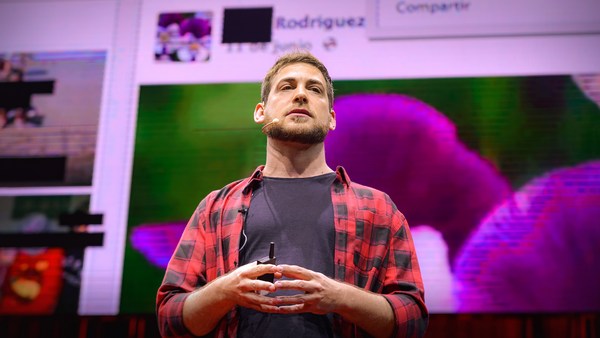
Sebastián Bortnik: The conversation we're not having about digital child abuse
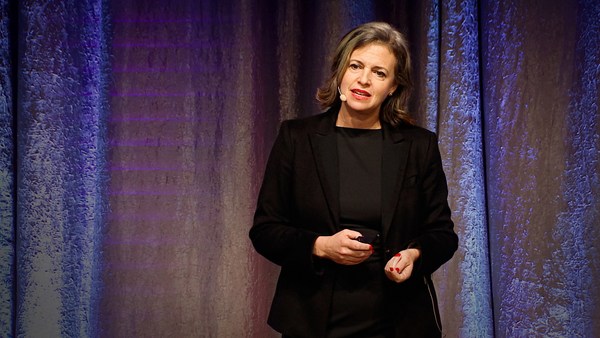
Jennifer Granick: How the US government spies on people who protest -- including you
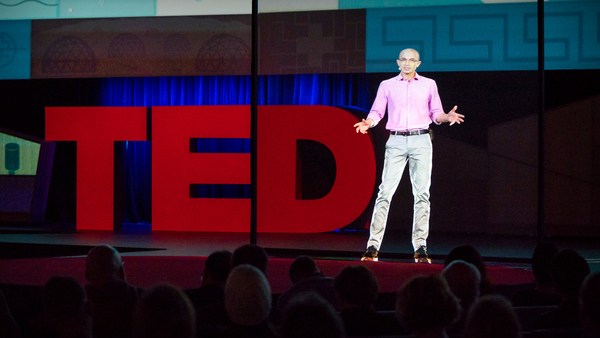
Yuval Noah Harari: Why fascism is so tempting -- and how your data could power it
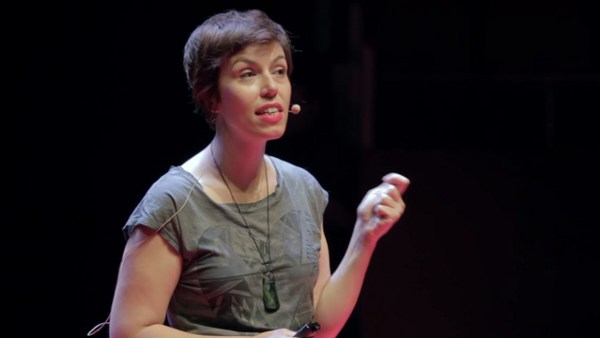
Marta Peirano: The surveillance device you carry around all day
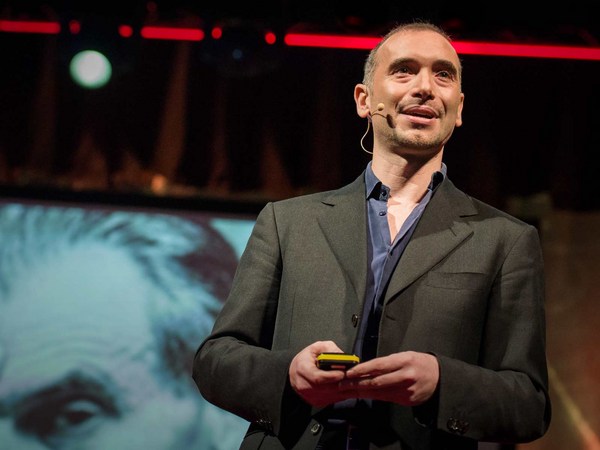
Alessandro Acquisti: What will a future without secrets look like?
